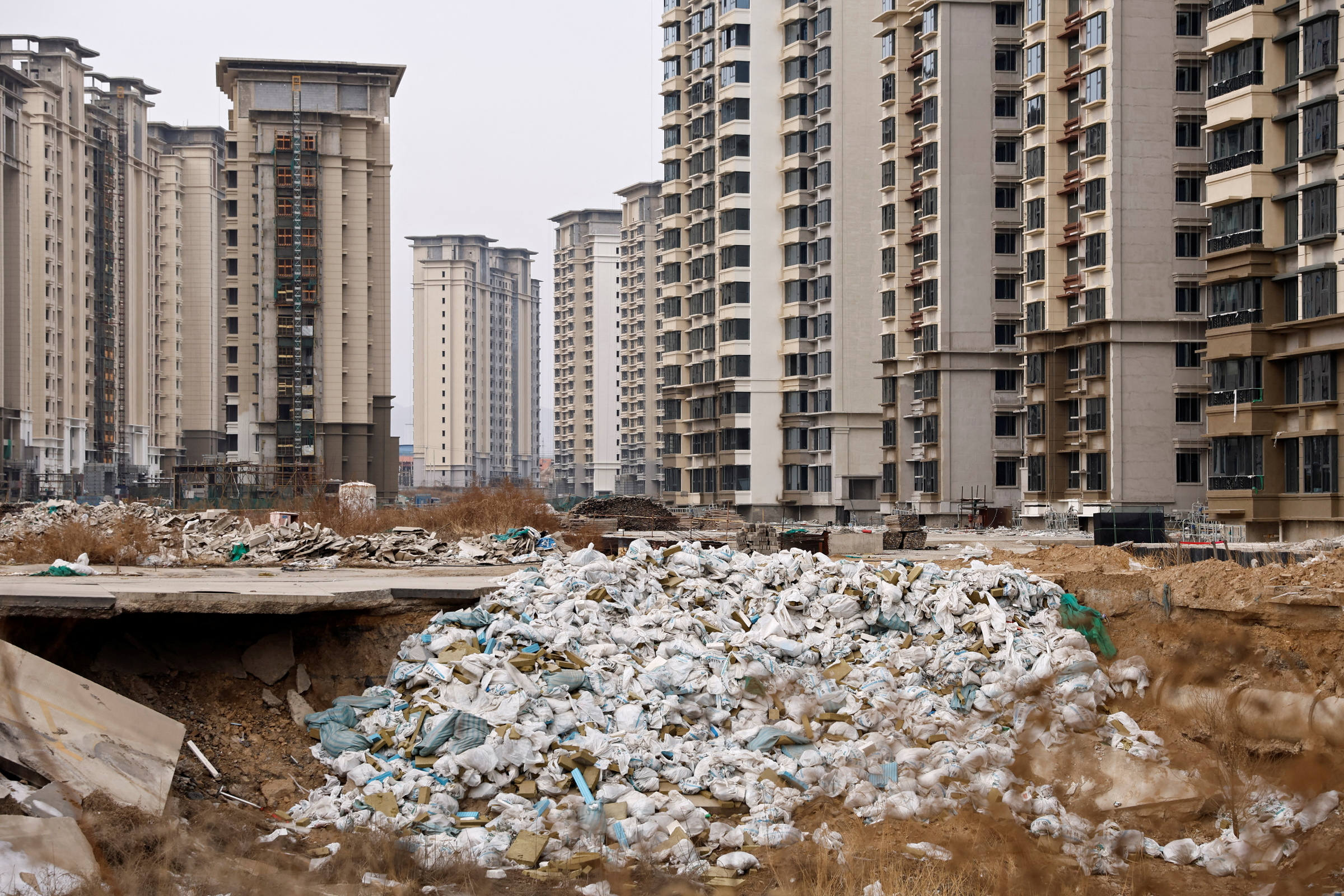China Evergrande announced it has received notification from the Hong Kong stock exchange regarding its delisting, effective 22/8. The reason given is the failure to resume trading before 28/7. Evergrande will not appeal the decision.
"To our shareholders and investors, Evergrande shares will no longer be listed or traded on the stock exchange after 22/8," the company stated.
Once one of China's most successful property developers, Evergrande became a symbol of the country's real estate crisis. Government efforts to curb lending in the sector, aimed at controlling a debt bubble and slowing rising house prices, cut off key funding for property companies.
Evergrande defaulted on its international debts in late 2021. By early 2024, it held around $240 billion in assets against over $300 billion in liabilities, making it one of the world's most indebted companies.
 |
An unfinished China Evergrande Group project in Hebei, China, in 2/2024. Photo: Reuters |
An unfinished China Evergrande Group project in Hebei, China, in 2/2024. Photo: Reuters
The company has been trying to persuade creditors to agree to a restructuring plan for its foreign debt. However, these efforts have faced continuous challenges due to investigations into its leadership and main branches in China.
In 1/2024, a Hong Kong court ordered Evergrande to liquidate its assets to address its $300 billion debt. The judge stated that the company failed to present a viable restructuring plan, despite multiple extensions.
Evergrande's shares have been suspended since then. Under Hong Kong regulations, stocks can be delisted after an 18-month suspension.
In a late July progress report, Evergrande's liquidation team revealed they had received $45 billion in debt claims. This is significantly higher than the approximately $27.5 billion reported in 12/2022.
The team has taken control of over 100 companies and entities within the Evergrande group, with total assets valued at $3.5 billion as of 29/1/2024. They have not yet estimated the recoverable amount from these entities.
To date, around $255 million in assets have been sold, a figure described as "modest." Of this, $244 million came from subsidiary assets. However, not all of these funds can be used for debt repayment due to the complex ownership structure of the assets.
In 2024, Evergrande's subsidiary, Hengda Real Estate, was fined 4.2 billion yuan ($584 million) for inflating its revenue by nearly $80 billion in the two years prior to its default. Evergrande founder Hui Ka Yan was also fined 47 million yuan and banned from China's securities market.
Ha Thu (via AP)












